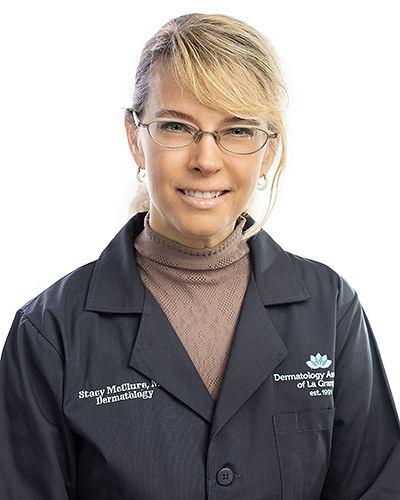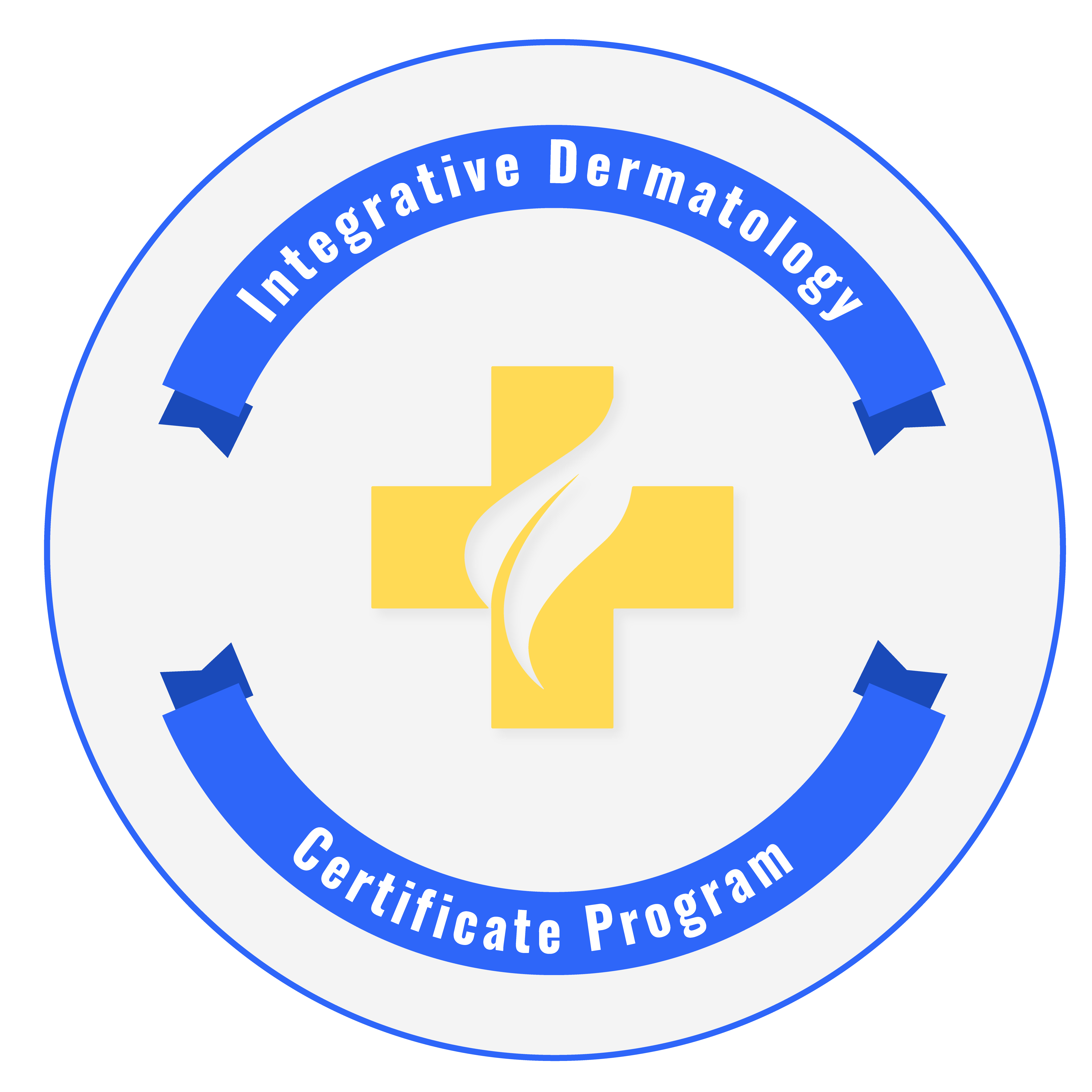Incorporating Integrative Medicine into Dermatology

By: Stacy McClure, MD, FAAD
Dr. Stacy McClure is a board-certified dermatologist. Prior to joining Dermatology Associates of La Grange in 2009, she completed a two-year research fellowship at Northwestern University focusing on clinical trials in dermatology. She then began her career as a dermatologist at Loyola University in Chicago where she also pursued teaching, she became an Associate Professor, and also the Director of Clinical Trials.
Dr. McClure practices traditional medicine, but has a special interest in incorporating integrative medicine into her dermatology practice when applicable. She is certified through LearnSkin’s Integrative Dermatology program.
What is integrative medicine?
Integrative medicine is the expansion of the toolkit for a practitioner to not only use the standard teachings of pharmaceutical medicine taught in medical school, but also to encompass the traditional techniques which use many different approaches including nutrition, herbs, supplements, off-label medications, mind-body techniques, and specialized testing if and when appropriate.
Why does integrative medicine interest you?
I personally became interested in integrative medicine after some of my family members were struggling with various ailments and not getting better with conventional medicine alone. I was introduced to a new world of options and explanations (through learning about integrative medicine) that I was previously unaware of and when it helped, I decided I should offer the same approach to my patients. Not all cases and situations require this approach, but it is nice to be able to incorporate it if warranted.
What does it mean to be IDCP certified?
IDCP is the Integrative Dermatology Certificate Program. It is a 9-month data-driven intensive course through LearnSkin with weekly lessons and tests, and a final project completed in order to become certified. It is designed by dermatologists, and only dermatologists are eligible to become certified. It is currently the only program of its kind that teaches and explores integrative dermatology.

How can this approach to medicine help treat dermatologic conditions?
Because integrative medicine uses all available approaches to treat a condition, it provides more treatment options, and approaching a condition from sometimes multiple angles. We still use conventionally taught medicine and techniques but also incorporate other traditional approaches if the conventional ways are not adequate or appropriate.
Do you have an example of a case in which you incorporated integrative medicine?
Often times conventional methods work great, but when they don’t, bringing in some traditional options can help make the other things work better. For example, I had a patient with a common inflammatory skin condition on her face that responded well to supplements and dietary changes after doing some specialized testing and finding an underlying trigger. She still needs to use a prescription topical but now it is well-controlled.

